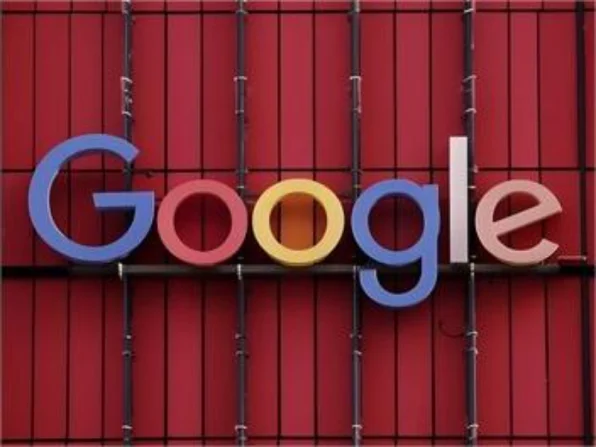Internet governance refers to the rules, policies, standards, and practices that coordinate and shape global cyberspace.
- The Internet is a vast network of independently managed networks, interwoven by globally standardized data communication protocols (primarily, Internet Protocol, TCP, UDP, DNS, and BGP).
- The common adoption and use of these protocols unified the world of information and communications like never before. Millions of digital devices and massive amounts of data, software applications, and electronic services became compatible and interoperable. The Internet created a new environment, a complex and dynamic “cyberspace”.
- While Internet connectivity generated innovative new services, capabilities, and unprecedented forms of sharing and cooperation, it also created new forms of crime, abuse, surveillance, and social conflict. Internet governance is the process whereby cyberspace participants resolve conflicts over these problems and develop a workable order.
The exposure of controversial U.S. surveillance methods, like spying on certain foreign leaders, has sparked a global discussion on internet governance. Some countries want to use this scandal to lessen America’s control over key internet processes managed by the U.S. based Internet Corporation for Assigned Names and Numbers (ICANN), which oversees unique identifiers like IP addresses and domain names. However, the conversation on internet governance covers a wide range of issues, from freedom of speech to trade, privacy, cybersecurity, and national sovereignty.
Also read: What are the challenges of internet governance?
What is internet governance?
Internet governance is the intricate process through which various stakeholders—governments, private sector companies, civil society groups, and technical communities—collaborate to shape the Internet’s structure, functionality, and use. This collaborative effort aims to establish shared principles, norms, rules, decision-making procedures, and programs that dictate how the Internet evolves and operates.

This definition was crafted by the Working Group on Internet Governance (WGIG) back in 2003. This group was convened during the initial phase of the World Summit on the Information Society (WSIS), where the UN Secretary-General tasked WGIG with identifying and clarifying the public policy issues pertinent to internet governance. The WGIG’s report was pivotal; it not only defined internet governance but also recommended key frameworks for handling these complex issues.
One of the significant outcomes from WGIG’s recommendations was the establishment of the Internet Governance Forum (IGF). The IGF serves as a global platform for dialogue among all stakeholders, allowing for an exchange of ideas on public policy issues related to the Internet. It’s a non-decision-making forum where policy principles can be debated, and best practices shared, fostering a more inclusive and democratic approach to internet policy-making.
Also read: UN Internet Governance Forum to be held in Riyadh in December
Also read: ICANN 80 preview: How to create a sustainable internet?
The scope of internet governance includes critical areas like internet protocol addresses management, domain name systems, cybersecurity, privacy protection, and the digital divide. Each aspect requires a nuanced approach, considering the diverse interests and capabilities of different countries and entities.
Moreover, internet governance is not static; it evolves with technology and societal needs. For instance, with the advent of technologies like blockchain, IoT (Internet of Things), and AI, new governance challenges arise, concerning data sovereignty, ethical AI use, and the democratization of the internet infrastructure.
What is the Internet Governance Forum (IGF)?
The Internet Governance Forum (IGF) was established by the World Summit on the Information Society (WSIS) in 2005, with its inaugural meeting taking place in Athens in 2006. Unlike other international bodies that might have decision-making powers, the IGF is designed specifically as a platform for discussion rather than decision-making. This unique role makes it an essential venue for fostering an inclusive dialogue on internet governance, ensuring that developing nations have an equal opportunity alongside wealthier countries to participate in shaping the future of the Internet.
The primary goal of the IGF is to facilitate an open, inclusive, and transparent discussion among diverse stakeholders. This includes not only governments but also civil society groups, the private sector, technical communities, academia, and individual internet users. The forum aims to bridge the gap between different interests and perspectives, enabling a thorough exploration of new and ongoing issues in internet governance. Participation in the IGF is open to anyone interested, and accreditation is free, which significantly democratizes access to these crucial conversations. This inclusivity is vital for the sustainable and equitable development of the Internet. The IGF’s structure supports this by organizing sessions around various themes that reflect current and future challenges in internet governance, such as cybersecurity, digital inclusion, privacy, and the digital economy.

Typically, the IGF attracts between 1500 and 2200 participants from around the globe, bringing together a rich tapestry of experiences and expertise. These participants engage in a series of workshops, panels, and open forums where they can discuss policy implications, share best practices, and consider how to maximize opportunities while identifying emerging trends, risks, and challenges. One of the notable collaborations of the IGF is with the Dynamic Coalition on Public Access in Libraries, which focuses on enhancing public access to information through libraries globally.
The annual nature of the IGF, usually held in the last quarter of the year, provides a consistent opportunity for this global dialogue. For instance, in 2015, the forum was hosted in João Pessoa, Brazil, where discussions revolved around themes like enhancing multistakeholder cooperation and addressing global internet policy challenges. Moreover, beyond these annual global meetings, there are also regional and national IGF initiatives that complement the global forum, allowing even more localized discussions and actions on internet governance issues. These smaller-scale events help in translating global discussions into local contexts, ensuring that the internet governance dialogue is not only top-down but also bottom-up, reflecting the unique challenges and opportunities at various levels of governance.
Hence, the IGF plays a pivotal role in the global internet ecosystem by promoting dialogue, enhancing mutual understanding, and fostering cooperation among all internet stakeholders, thereby contributing to a more equitable, secure, and accessible Internet for all.

The forms of internet governance
Internet governance, while often confused with government, encompasses a broader, more nuanced spectrum of activities aimed at managing and steering the development of cyberspace. Unlike traditional government which operates within defined national boundaries, internet governance deals with issues that transcend these limits, presenting challenges that national institutions might find complex or unsuitable to handle in isolation. Governance in this context suggests a decentralized, cooperative framework where a multitude of actors including standards developers, network operators, service providers, users, governments, and international organizations work together. This collaborative approach is designed to address and resolve issues while ensuring that the core principles of the Internet—openness, interoperability, and accessibility—are maintained.
To better understand the mechanisms of internet governance, we can apply the lens of institutional economics, which identifies three primary forms of governance: markets, hierarchies, and networks.
- Markets operate through private transactions where pricing mechanisms dictate the allocation of resources. In the context of the Internet, this might involve the buying and selling of domain names, bandwidth, or even cybersecurity services where the price reflects the value or scarcity of these digital resources.
- Hierarchies are characterized by authority and control, similar to how a government enforces laws or a corporation manages its operations. On the Internet, hierarchical governance can be seen in the control of infrastructure like root DNS servers or in the regulatory policies set by national governments concerning data protection, privacy, or content regulation.
- Networks, perhaps the most fitting for internet governance, are voluntary systems where actors collaborate without a central authority, relying instead on mutual interdependence and shared interests. This is evident in the workings of the Internet Engineering Task Force (IETF), where protocols are developed through consensus, or in the multistakeholder model of organizations like ICANN, which manages domain names but does so through a complex interplay of community input, board decisions, and international oversight.
Also read: Who is Kurtis Lindqvist? New president & CEO of ICANN, forming the future of internet governance
Internet governance uniquely blends these structures, often leaning towards self-governance by market players and communities. For example, the development of standards for new technologies often occurs in a decentralized manner, driven by industry needs and peer review rather than top-down directives. However, the influence of national policies cannot be underestimated. Countries enact laws and regulations that can profoundly affect the Internet’s structure and use—think of data localization laws, privacy regulations, or censorship practices.
This blend of governance forms highlights the adaptive and cooperative nature required to manage the Internet. As cyberspace evolves, so too must its governance mechanisms. The Internet’s borderless nature introduces novel challenges like cybercrime, digital sovereignty, and the digital divide, which traditional governance models might not adequately address. Thus, new institutions and governance approaches are continually emerging, shaped by the need for cooperation across borders and sectors, balancing between fostering innovation and protecting users’ rights and security.
The dynamic interplay between markets, hierarchies, and networks in internet governance reflects a continuous negotiation of power, responsibility, and innovation. It’s a governance model that must remain agile, inclusive, and capable of addressing not only the current landscape of the Internet but also its future possibilities and perils.
Who are the internet governance actors?
The governance of the Internet is a complex, multi-layered affair where no single entity holds absolute control. Instead, it’s a collective endeavor shaped by a diverse array of actors who influence its development, functionality, and regulation. According to established definitions and practices, this governance involves a broad spectrum of players including:
- Governments: They play a crucial role in internet governance through legislation, policy-making, and regulation. Each country might have different approaches to issues like privacy, cybersecurity, and content regulation. National governments can also participate in international agreements that impact global internet governance.
- International bodies: Organizations like the United Nations and its agencies (e.g., ITU – International Telecommunication Union) are key players. They provide forums for international dialogue and can influence global policy through treaties or recommendations. The ITU, for instance, is involved in coordinating global telecom operations, which directly affects internet infrastructure.
- Businesses: From tech giants to small startups, companies contribute significantly to internet governance. They influence through practices in data handling, development of standards, and innovation in service provision. Tech companies like Google, Amazon, and Microsoft play roles in shaping internet architecture through their services and sometimes through participation in governance bodies.
- Technical communities: Groups like the Internet Corporation for Assigned Names and Numbers (ICANN) and the Internet Engineering Task Force (IETF) are pivotal. ICANN manages the domain name system, crucial for the Internet’s functionality, while IETF develops technical standards, ensuring interoperability and innovation. These communities often operate on consensus-based models rather than hierarchical control.
- Civil society: This includes NGOs, advocacy groups, and individual activists who focus on issues like digital rights, access, privacy, and freedom of expression. They ensure that the voices of users, especially from marginalized or underrepresented communities, are heard in governance discussions. Groups like the Electronic Frontier Foundation or Access Now are examples here.
- Academia and Think Tanks: They contribute through research, policy analysis, and education. Universities and research institutions often provide the theoretical and empirical groundwork for understanding internet governance issues, while think tanks might offer policy recommendations or critique current governance models.
- Non-profit organizations: These can range from those focused on internet freedom, like the Internet Society, to those advocating for specific issues like digital inclusion or open-source software. They often bridge the gap between technical, social, and political spheres in governance discussions.

The Digital Watch observatory categorizes these actors further, recognizing that some might fit into multiple categories. For example, a tech company might also engage in think-tank activities, or an academic institution might contribute to standard-setting bodies like the IETF. This categorization helps in understanding the multifaceted nature of internet governance, where roles can be fluid and overlapping.
Together, these actors form an ecosystem where governance is not only about control but also about collaboration, negotiation, and sometimes, contention. This ecosystem is dynamic, with new players emerging as technology and societal needs evolve. The Internet Governance Forum (IGF) serves as a platform where these diverse actors can come together, discuss, and sometimes resolve these complex governance issues, ensuring that the Internet remains a space for innovation, free expression, and global connectivity.
Other terms: Digital policy, digital governance, cyber governance, internet policy
More than a decade after the WSIS, the concept of ‘internet governance’ continues to be a subject of diverse interpretation. In public policy dialogues, practitioners often employ a variety of terms, sometimes using them interchangeably, including digital policy, digital governance, cyber governance, and internet policy. Each of these terms can subtly shift the focus or scope of discussion, reflecting the multifaceted nature of managing digital spaces.
Also read: APrIGF 2024: Building the future of internet governance in Asia
The debate over these terms largely centers on their breadth and specificity. For instance, there’s considerable discussion on whether ‘cybersecurity’ should be seen as a subset of internet governance or as a separate discipline altogether. Cybersecurity involves protecting digital environments from threats, which some argue is intrinsic to managing the internet’s infrastructure and use. Others, however, view cybersecurity as a specialized field requiring its own governance model due to its technical and legal complexities.
There’s also disagreement on whether internet governance should be confined to technical aspects like those managed by the Internet Corporation for Assigned Names and Numbers (ICANN), such as domain names and IP addresses, or if it should extend to broader public policy issues. This broader view includes privacy, freedom of expression, access rights, and digital economic policies.
Generally, ‘internet governance’ and ‘digital policy’ are used as overarching terms that encompass a wide range of internet-related public policies. These can be broken down into several categories:
- Infrastructure: This includes the policies around network neutrality, broadband access, and the management of internet protocols.
- Security: Encompassing cybersecurity, data protection, and safeguarding digital resources.
- Human Rights: Addressing digital rights, privacy, and freedom of expression online.
- Economic: Covering e-commerce, digital taxation, and intellectual property in the digital realm.
- Development: Focusing on reducing the digital divide, promoting digital literacy, and ensuring universal access.
- Legal: Exploring jurisdiction, the application of international law in cyberspace, and legal frameworks for digital content.
- Sociocultural: Looking at the cultural implications of the internet, digital citizenship, and social interactions shaped by digital technologies.
Using these terms broadly helps us understand the interconnectedness of internet issues. The choice of terminology can highlight different facets of the digital world’s challenges and opportunities.
In essence, whether we’re talking about managing digital spaces or shaping digital policies, the language we use matters. It shapes our conversation and our approach to a future where every aspect of life is touched by the digital. This dialogue, rich in diversity and perspective, ensures that the internet remains a dynamic, inclusive, and transformative force in our society.
FAQs
Internet governance is the collaborative effort among various stakeholders like governments, private sectors, and civil societies to define how the internet is structured, operated, and used. It involves setting up principles, norms, and policies to manage the internet’s evolution and functionality.
The IGF, launched in 2005 by WSIS, serves as a global dialogue platform rather than a decision-making body. It fosters discussions on internet governance issues, ensuring inclusivity by allowing participation from all interested parties, from developing to developed nations, discussing themes like cybersecurity and digital inclusion.
Internet Governance can be viewed through three lenses from institutional economics: markets (private transactions), hierarchies (control and authority), and networks (voluntary collaboration). These forms blend in internet governance to address issues while maintaining the internet’s open and interoperable nature.
Key players include governments, international organizations, businesses, technical communities like ICANN and IETF, civil society, academia, think tanks, and non-profits. Each contributes uniquely, from policy-making to standard-setting, ensuring a multifaceted approach to governance.
These terms often overlap but can emphasize different aspects. ‘Digital Policy’ and ‘Internet Governance’ are broad, covering a range of issues from infrastructure to human rights. ‘Cyber Governance’ might specifically relate to cybersecurity, while ‘Internet Policy’ could focus more on policy aspects directly affecting internet operations. The choice of term can reflect the scope and focus of the discussion at hand, highlighting the complexity and interconnectedness of digital issues.









